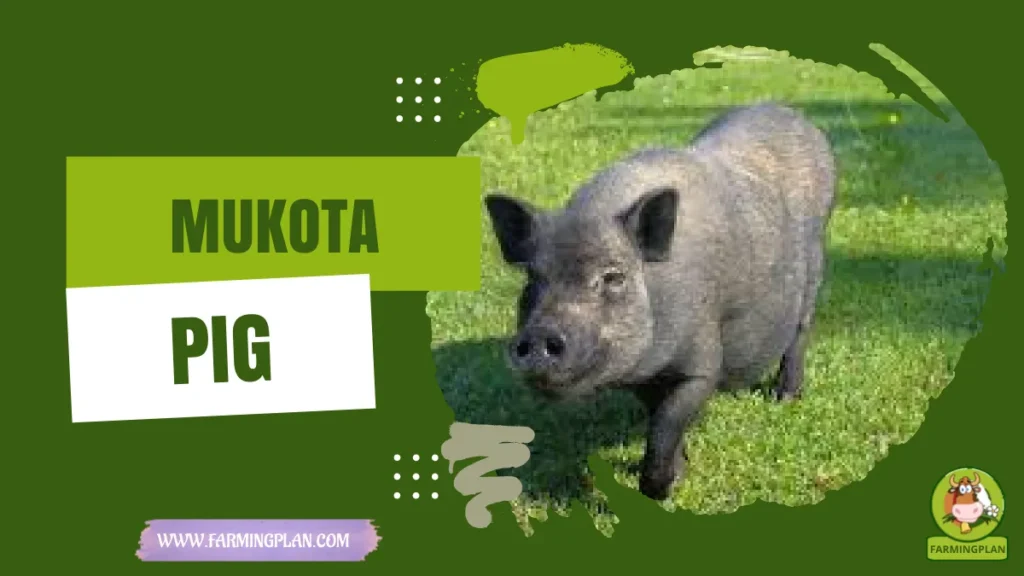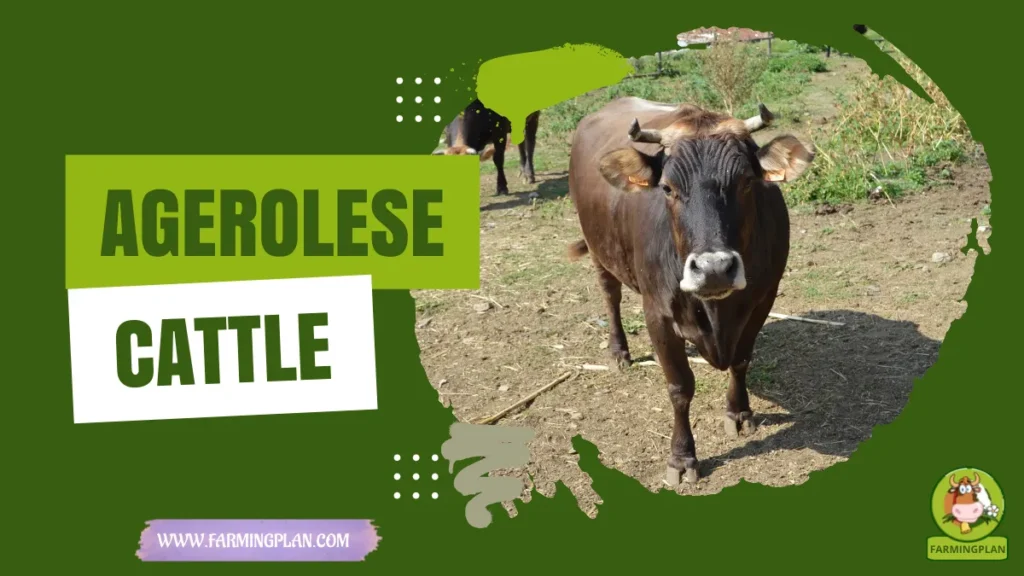In the swine farming industry, the Chester White Pig stands as a highly desired breed because it is adaptable and has premium meat quality. Based in Chester County, Pennsylvania, the breed originates from the breeders whose historic roots extend back to commercial and specialty farm usage. Because of its solid white color and superior muscle growth, the Chester White Pig serves as a leading producer of premium quality pork intended for the highest market levels. Any farmer, from experienced to beginner among swine breeders, will discover multiple benefits through owning one or more Chester White Pigs for both breeding purposes and pork production.

History & Origin of Chester White Pig
Since the early 19th century, people have kept the Chester White Pig in Chester County, Pennsylvania. Sheep from local Pennsylvania origins were crossed with white-breeding pigs that settlers brought from several European countries. Developers sought to establish a livestock breed suitable for American farming needs to provide premium pork production in diverse environments. Thomas Sharpless played a vital role in the process of developing the Chester White Pig because he came from Chester County, where he operated as both a farmer and a breeder in the area. Through his efforts, Thomas Sharpless improved the breed until it displayed durable characteristics such as rap, id growth, and excellent muscle development alongside farmer-preferred traits.
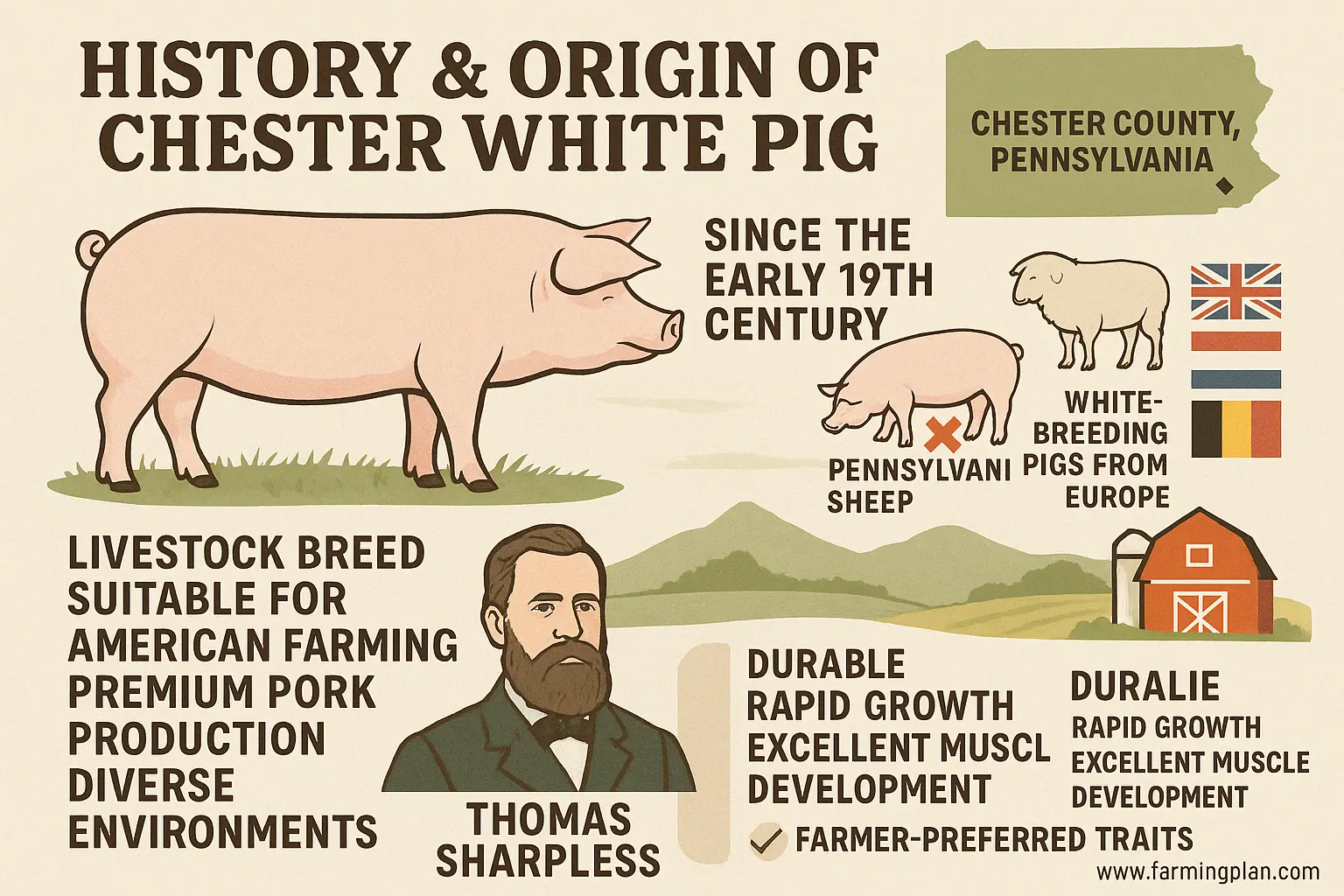
The breed grew in stability, thus attracting farmers in the local area, which led to its rapid expansion across United States territory. The Chester White Pig established its place in breeding organizations when the Chester White Swine Record Association was formed in 1884 during the late 19th century. The association proved instrumental in advancing and advertising the top quality of this particular breed. As the years passed, the Chester White breed established itself among American hog breed records and achieved position number five on the list of most documented domestic pigs.
The Chester White breed sustained its growing popularity during the twentieth century as it served dual purposes in small family farms and big commercial swine operations. The Chester White pig population today relies on their superior mothering skills to serve as an essential breed in swine maternal production systems. Their ability to survive different conditions combined with their purebred background makes the Chester White an extremely beneficial choice for global pork producers.
Reads More: Barbado Da Terceira Dog: 5 Reasons It’s Your Best Family Pet
Characteristics of Chester White Pig
Farmers and breeders have made the Chester White Pig one of their top choices because of its distinctive traits, which include physical appearance and productive capabilities. The Chester White stands out through its consistent white coat, which forms one of its signature characteristics. We need to examine several unique features of the Chester White Pig.
Physical Traits of Chester White Pigs
Chester White Pigs are medium to large-sized pigs with a solid, muscular build. Their skin is smooth, and they have a uniform white color, which is one of the breed’s distinguishing features. This pale color is ideal for pork production because it indicates high-quality meat and muscle development. The Chester White Pig’s ears are slightly drooping, which gives them a distinct, friendly appearance. The breed’s exceptional ability to develop lean muscle makes it highly valued for producing lean pork with excellent flavor. Chester White Pigs’ muscular build allows them to gain weight quickly, which is beneficial for both commercial crossbreeding operations and standalone farming setups.
Size and Build: What Makes Chester White Pigs Stand Out
The Chester White Pigs adapt to various farming environments because they work well in small family farms together with large commercial operations. Commercial Chester Whites reach market readiness within a weight range of 500 to 700 pounds as they develop their well-proportioned body shape, which promotes efficient growth and feed utilization. Weather conditions can’t impact the Chester White Pig due to its robust body structure, which includes strong bones. This ensures their suitability for any climate. The Chester White Pig stands out for its endurance quality, which leads commercial producers to prefer it in crossbreeding operations because it provides maximum productivity through strength and durability.
Common Physical Variations within Chester Whites
Most Chester White Pigs exhibit a solid white coat, but their body characteristics might show slight modifications. The body types of Chester White pigs display differences that create either muscular or moderately built versions of the breed. Farmer flexibility during breeding selection depends on the wide range of traits presented by Chester White Pigs. The Chester White breed demonstrates high breeding capacity by producing numerous litter offspring. The ability of Chester White pigs to rapidly breed populaces makes them ideal for farms aiming at pork production since they quickly grow their stock base to fulfill market requirements.
Nature/Temperament of Chester White Pigs
The Chester White Pig is known for its physical traits and friendly and adaptable temperament. This easygoing breed is a popular choice among farmers, breeders, and even hobbyists. Let’s explore why Chester White Pigs are considered one of the most manageable and versatile breeds in terms of temperament.
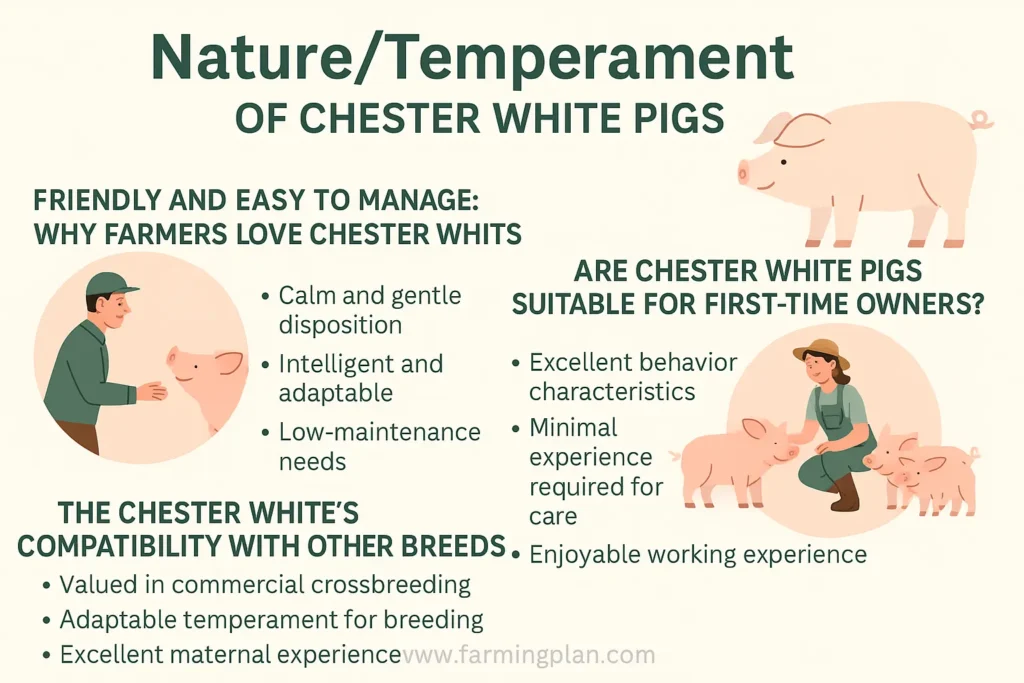
Friendly and Easy to Manage: Why Farmers Love Chester Whites
The main characteristic that makes Chester White Pigs special is their natural disposition to remain calm. The breed stands out for its gentle disposition, which attracts both novices who want to keep pigs and expert farmers. Their non-aggressive personality allows for better interaction because they remain pleasant toward people, including handlers and caretakers. Working on farms with extensive pig operations benefits from these pigs since they handle movements and daily handling tasks calmly. Chester White Pigs demonstrate both intelligence and quick learning capabilities that facilitate their simple management needs. Their remarkable capacity for adapting to diverse settings and schedules qualifies the Chester White Pig as outstanding farm livestock for dependable, low-maintenance needs.
Are Chester White Pigs Suitable for First-Time Owners?
People interested in caring for pigs for the first time should consider Chester White Pigs since they possess excellent behavior characteristics. Chester White pigs demonstrate calmer temperament and gentleness rather than the aggression found in other breeds. This friendly temperament makes pig management simpler because they require minimal experience for care in their first upbringing. New owners can easily keep Chester White Pigs regardless of their farm setup size, from small family units to bigger commercial facilities. The pigs provide owners with a beautiful working experience because of their friendly nature, which brings pleasure to all parties involved.
The Chester White’s Compatibility with Other Breeds
The Chester White Pig gains its popular status because of its ability to work well with various breeds during crossbreeding programs. Commercial crossbreeding operations extensively use Chester Whites because of their ability to enhance growth rate, muscle development, and pork quality when they are interspersed with other breeds. Because Chester Whites exhibit an adaptable temperament, they can successfully mate with other breeds to produce active, robust offspring. Breeding programs highly value their excellent maternal abilities. The Chester White sow possesses advanced maternal qualities that enable her to protect her piglets during gestation and increase birth survival rates effectively. The Chester White Pig stands out in breeding operations that focus on pork production because of its exceptional maternal characteristics.
Food & Diet of Chester White Pigs
Proper nutrition is essential to maintaining the health and well-being of any pig, and the Chester White Pig is no exception. A well-balanced diet plays a crucial role in ensuring the pig’s growth, muscle development, and overall health. In this section, we will explore the feeding guidelines for Chester White Pigs, providing advice on what to feed them, how to maintain their health, and what to avoid.
What to Feed a Chester White Pig: A Complete Diet Guide
Chester White Pigs require a nutrient-rich diet to promote healthy growth and muscle development. The diet should consist of a combination of:
- High-quality grains, Such as corn, barley, and oats, provide the necessary carbohydrates for energy.
- Protein sources: Include soybeans, alfalfa, or other protein-rich feeds to help in muscle development and overall growth.
- Vitamins and minerals: Essential nutrients like calcium, phosphorus, and vitamin A are necessary for bone health, immune function, and reproductive health. Most commercial pig feeds include these micronutrients, but it’s essential to ensure they are part of the diet.
Additionally, fresh water should always be available for hydration, as pigs can consume a large amount of water each day. Ensuring the water is clean and accessible is vital for their overall health.
Best Foods for Healthy Muscle Development
One of the key traits of Chester White Pigs is their ability to develop lean, quality muscle. To support muscle growth, their diet should be protein-dense. In addition to grains, consider incorporating the following into their meals:
- Soybean meal: A common source of protein that supports muscle-building.
- Fish meal: High in essential amino acids, it’s a great supplement to encourage lean muscle development.
- Animal by-products: When appropriate, these can be included to provide a variety of amino acids that promote healthy muscle tissue.
The key is ensuring that the pig’s diet remains balanced and focused on providing the proper nutrients for muscle quality and growth rate. This will contribute to the production of premium pork, which is highly valued in markets that seek lean meat.
Common Mistakes to Avoid in Feeding Chester White Pigs
Feeding Chester White Pigs correctly is essential for their health and productivity. However, there are several common mistakes that farmers should avoid:
- Overfeeding or underfeeding: Striking the right balance is key. Overfeeding can lead to obesity and health complications, while underfeeding may slow growth and reduce muscle quality. Make sure to provide the right amount of feed based on their age, size, and activity level.
- Not providing enough fiber: Pigs require a balanced diet that includes fiber for proper digestion. Ensure that their feed contains enough roughage, like hay or silage, to maintain digestive health.
- Feeding low-quality feed: Always invest in high-quality feed that is formulated specifically for pigs. Low-quality or expired feed can lead to nutrient deficiencies or health problems.
Reads More: Awassi Sheep: 7 Powerful Reasons Farmers Love This Breed
Usage/Purpose of Chester White Pigs
The Chester White Pig is renowned for its versatility and is highly valued in various farming and breeding operations. Whether raised for meat production, breeding, or crossbreeding, the Chester White Pig serves multiple purposes, making it a popular choice among farmers worldwide. In this section, we’ll explore the different ways Chester White Pigs are used and why they are so highly regarded in the pork industry.
Chester White Pigs in Pork Production: A Key to Quality Meat
The excellent meat quality output from Chester White Pigs remains a leading factor in their widespread popularity. Commercial pork production works best when you use these pigs since they deliver lean muscles with extraordinary meat quality. These pigs deliver succulent and lean meat that is ideal for various pork product manufacturing, such as park chops, bacon and ham, and higher-end sliced meats.
The Czech breed maintains excellent muscle development, which helps producers create premium pork with premium texture and flavor characteristics. Because of its special characteristics, the Chester White Pig finds its market in specific commercial sectors, making it a top pick for particular pork product production. Chester White Pork obtains preference from restaurants and butcher shops because it offers excellent taste characteristics coupled with tenderness.
The Role of Chester White Pigs in Commercial Crossbreeding
Chester White Pigs are often used in commercial crossbreeding operations to improve the genetic quality of other pig breeds. Known for their strong maternal traits, they are commonly paired with different breeds, like the Landrace or Yorkshire, to create offspring that excel in traits like growth rate, muscle quality, and fertility. These crossbreeds are especially valuable for commercial farms focused on pork production. They combine the best traits of both breeds, resulting in pigs that grow faster, produce higher-quality meat, and are more resilient. Chester White’s genetic contributions help increase the overall profitability of these operations.
Why Chester White Pigs Are in Demand for Niche Markets
In addition to commercial pork production, Chester White Pigs are also in high demand in niche markets. Their ability to produce lean, tender meat has made them a top choice for premium meat producers targeting high-end markets. Due to the exceptional flavor and texture of their meat, many gourmet pork products, like artisanal sausages and specialty cuts, are produced from Chester White pigs.
Moreover, the breed’s hardiness and adaptability make them an excellent option for smaller farms that focus on sustainable and niche farming operations. As demand for high-quality, locally sourced pork continues to grow, Chester White pigs play a vital role in meeting the needs of discerning consumers.
“When You Choose Chester White Pigs, You’re Investing In Quality, Resilience, And Success—The Key To Thriving Farming Operations!”
Special Features of Chester White Pigs
People value the Chester White Pig for qualities beyond its physical features and meat characteristics. The Chester White Pig displays several factors that separate it from other swine breeds. It stands out through its maternal capabilities and muscular growth characteristics, which create high demand among farmers and breeders. The following subsection examines the particular factors that transform the Chester White Pig into an ideal selection for different farming functions.
Exceptional Muscle Quality and Lean Meat
One of the Chester White Pig’s most notable traits is its muscle quality. The breed is recognized for its ability to produce lean meat with excellent texture and flavor. Unlike some other breeds that may produce more fat, the Chester White Pig tends to develop a high percentage of lean muscle, making its meat ideal for premium pork cuts such as pork chops, roasts, and ham.
This muscle development is beneficial not only for pork producers but also for consumers seeking leaner cuts with better flavor profiles. The Chester White Pig’s ability to consistently produce lean muscle makes it highly sought after in both commercial and niche pork markets.
Why Chester White Pigs Are Known for Their Prolific Breeding
The Chester White Pig demonstrates exceptional breeding capability as its main characteristic. The female Chester White sows demonstrate outstanding maternal traits. The Chester Whitens exhibit strong maternal behavior that farmers need to generate healthy outcomes with their breeding programs. The Chester White pig breed allows farms to size up their operations effectively because it produces substantial numbers of live healthy piglets in each litter. Chester White sows demonstrate a natural tendency to have numerous offspring per year, which makes them essential for farmers who want to build their animal population quickly. Because Chester White Pigs have high breeding effectiveness, they function well both in commercial crossbreeding facilities and on small family farms, which require durable pig production.
How Chester White Pigs Contribute to Breed Improvement
The Chester White Pig’s genetics are highly valued in the world of swine breeding. Due to its strong growth rate, muscle quality, and maternal traits, the breed is often used to improve the genetics of other swine breeds. Crossbreeding of the Chester White with Yorkshire and Landrace pig breeds enables farmers to achieve better quality herds with enhanced characteristics such as growth efficiency and reproductive potential. The genetic advantages of Chester White Pigs lead them to join many commercial crossbreeding systems. The genetic combination of these pigs brings improvements to muscle formation while reducing body fat and strengthening the health and athletic capacity of the new generation.
Adaptability to Various Environments
Chester White Pigs are known for their adaptability to different farming environments. Whether raised in hot climates or colder regions, the breed can adjust to a wide range of conditions, making it a popular choice among farmers in diverse areas. Their hardiness and resilience make them particularly well-suited for extensive husbandry systems, where pigs are raised outdoors in less controlled environments.
Farmers appreciate the breed’s ability to thrive in various conditions, which allows them to maintain a more flexible and diverse farming operation. Whether raised in free-range systems or conventional barn setups, the Chester White Pig performs well across different farming styles.
Health Issues & Prevention for Chester White Pigs
Maintaining the health of Chester White Pigs is crucial for ensuring their longevity and productivity. While the breed is generally hardy and resilient, like any livestock, it can still be prone to specific health issues that need to be managed effectively. In this section, we will discuss some of the common health problems that Chester White Pigs may face, their symptoms, and the best practices for prevention and treatment.
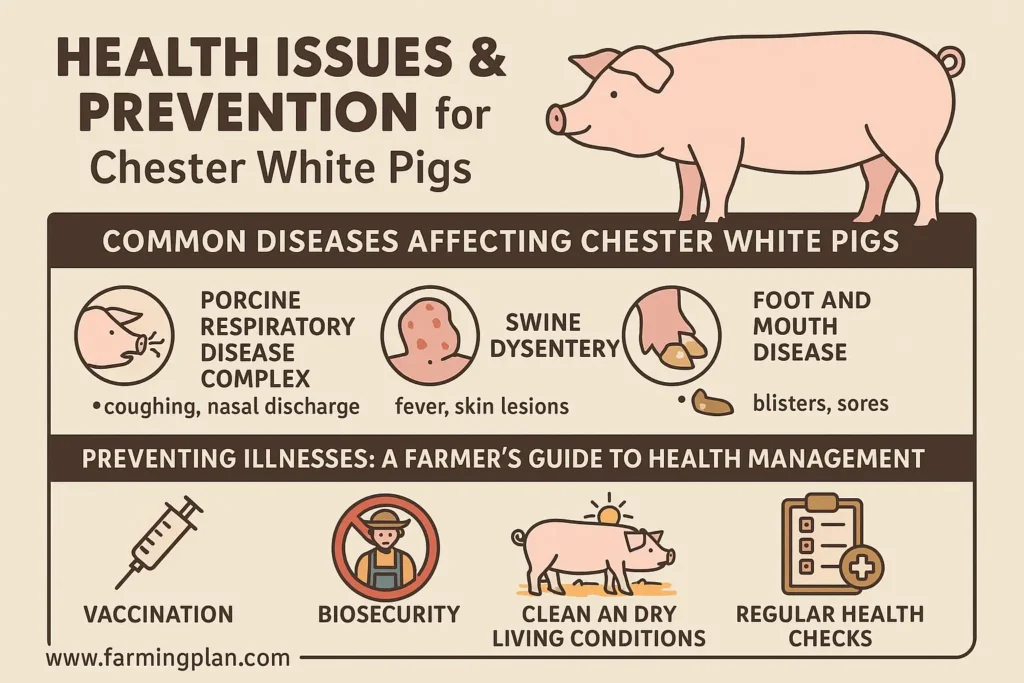
Common Diseases Affecting
Although Chester White Pigs are known for their resilience and hardiness, they are still susceptible to certain swine diseases. Some of the most common diseases affecting Chester White Pigs include:
- Porcine Respiratory Disease Complex (PRDC): This disease affects pigs’ respiratory systems and can lead to symptoms like coughing, nasal discharge, and difficulty breathing. A combination of viral and bacterial infections often causes it.
- Erysipelas: A bacterial infection that can cause fever, skin lesions, and joint problems in pigs. It is highly contagious, and vaccination is often the best prevention method.
- Swine Dysentery: This disease affects the gastrointestinal system, leading to bloody diarrhea, dehydration, and weight loss. Bacteria typically cause it, but proper sanitation and antibiotics can prevent it.
- Foot and Mouth Disease: While rare, this viral disease can affect pigs and lead to blisters on the feet and mouth, painful sores, and reduced feed intake. Proper biosecurity measures and vaccination can help prevent outbreaks.
Preventing Illnesses: A Farmer’s Guide to Health Management
The best way to keep Chester White Pigs healthy is through proactive health management. Here are some preventive measures that farmers can take to reduce the risk of illness:
- Vaccination: Ensure that Chester White Pigs are vaccinated against common diseases like PRDC, Erysipelas, and Swine Influenza. Consult with a veterinarian to develop a vaccination schedule tailored to your farm’s needs.
- Biosecurity: Maintain a strong biosecurity plan to prevent the introduction of diseases. This includes limiting visitors to the farm, disinfecting equipment, and controlling access to animals.
- Clean and Dry Living Conditions: Keep the pigs’ living areas clean and dry to reduce the risk of infections. Wet or dirty environments can spread bacteria and parasites.
- Regular Health Checks: Perform regular health checks on Chester White Pigs to monitor for any signs of illness. Early detection of symptoms such as changes in appetite, behavior, or coat condition can help prevent more serious health issues.
Treatments for Common Health Problems in Chester White Pigs
If health issues do arise, early treatment is essential for the pig’s recovery. Common treatments for swine diseases include:
- Antibiotics: For bacterial infections like Erysipelas or Swine Dysentery, antibiotics prescribed by a veterinarian can help manage the illness and prevent further complications.
- Pain Relief and Anti-Inflammatories: Anti-inflammatory drugs can help reduce pain and improve mobility in cases of joint pain or swelling.
- Hydration and Electrolytes: Electrolyte solutions can help restore hydration and improve recovery in pigs suffering from dehydration due to diarrhea or illness.
By maintaining a good health management plan and being proactive in disease prevention, farmers can ensure that their Chester White Pigs remain in optimal condition for both breeding and pork production.
Step-by-Step Farming Guide for Chester White Pigs
Chester White Pigs offer successful breeding possibilities to both household farmers and commercial agricultural professionals. People value the Chester White breed because it excels in adaptation to different farming systems and possesses strong maternal traits and excellent meat quality. The following section presents an organized guide for Chester White Pigs management, which includes clear instructions for establishing the setup and caring for them on a daily basis.
Step 1: Setting Up the Ideal Environment for Chester White Pigs
Creating the right environment for Chester White Pigs is essential for their well-being and productivity. Here’s how to prepare:
- Space: Chester White Pigs need ample space to roam and grow. For individual pigs, provide at least 10 to 20 square feet of space per animal in an indoor environment. If you are raising a group of pigs, more space will be necessary to prevent overcrowding.
- Shelter: Whether you are raising pigs outdoors or indoors, ensure they have a dry, clean shelter where they can escape extreme weather conditions. Provide a well-ventilated barn or outdoor huts with proper insulation to maintain comfortable conditions.
- Bedding: Use straw, wood shavings, or sand for bedding to keep the pigs comfortable and prevent waste buildup. Clean bedding regularly to maintain a hygienic environment.
- Water Supply: Ensure that pigs always have access to fresh, clean water. Install water troughs or automatic waterers to make hydration easy and efficient.
Step 2: Breeding and Raising Chester White Pigs for Meat Production
Breeding Chester White Pigs can be a profitable venture, as they are known for their high fertility and strong maternal instincts. Follow these steps for successful breeding and meat production:
- Selecting Breeding Stock: Choose healthy, genetically strong pigs for breeding. Look for sows with good mothering ability and boars with high muscle quality. For optimal results, consider crossbreeding Chester White Pigs with other breeds known for their growth rate and meat quality.
- Breeding Process: When breeding, monitor the sows for heat cycles, as they are most fertile during this time. Once the sow is in heat, introduce the boar. The gestation period for pigs is around 114 days (about 3 months, 3 weeks, and 3 days), after which the sow will give birth to a litter.
- Post-Birth Care: Once the piglets are born, ensure that the mother provides adequate care, including nursing. Chester White sows are generally excellent mothers, but you should monitor the piglets to ensure they are getting enough nutrition.
Step 3: Daily Care and Maintenance for Chester White Pigs
Daily care is crucial for maintaining the health and well-being of Chester White Pigs. Here’s what you need to do:
- Feeding: Provide a balanced diet that includes high-quality grains, protein sources, and essential vitamins and minerals. Adjust their diet according to their age, weight, and production goals (meat or breeding).
- Exercise: Give pigs plenty of room to move around. Physical activity helps them develop strong muscles and maintain a healthy weight.
- Health Monitoring: Conduct daily checks for any signs of illness, such as changes in appetite, behavior, or appearance. Look out for signs of disease like respiratory distress, skin lesions, or diarrhea, and consult a veterinarian if necessary.
- Cleaning: Maintain a clean living environment by removing waste and dirty bedding regularly. This will help reduce the risk of diseases and promote the pigs’ overall health.
Step 4: Record-Keeping and Breeding Management
Maintaining detailed records is essential for monitoring the progress of your farm and ensuring successful breeding operations. Keep track of the following:
- Health Records: Record vaccinations, illnesses, and treatments for each pig.
- Breeding Records: Keep track of breeding dates, piglet birth rates, and genetic details for all breeding pigs.
- Growth and Weight Monitoring: Measure each pig’s weight gain regularly to ensure they are growing as expected. This will help you assess feed efficiency and adjust diets if needed.
By following these steps, you’ll be able to raise Chester White Pigs successfully, whether for meat production, breeding, or both. Proper care, attention to detail, and good breeding management practices are key to maximizing the potential of this versatile breed.
Expert Tips & Best Practices for Chester White Pig Care
To ensure that your Chester White Pigs thrive and continue to provide high-quality meat and healthy offspring, it’s essential to follow some expert tips and best practices. Whether you are a seasoned farmer or new to raising pigs, these tips will help you get the most out of your Chester White Pigs and improve the efficiency and productivity of your farm.
Best Practices for Maximizing Muscle Quality and Meat Flavor
The lean meat and muscle development of Chester White Pigs are some of the breed’s most sought-after traits. Here’s how you can maximize muscle quality and enhance the flavor of the pork:
- Proper Nutrition: Feed the pigs a protein-rich diet to encourage muscle growth. Focus on providing high-quality grains, soymeal, and fish meal to promote lean muscle development. Be mindful of the protein-to-carbohydrate ratio to avoid excess fat.
- Feed Adjustments During Growth Stages: As pigs grow, adjust their feed to align with their changing needs. Young pigs should receive a diet that supports rapid growth, while older pigs should be fed to maintain muscle development without excess fat accumulation.
- Exercise: Allow Chester White Pigs enough space for exercise. Regular movement improves muscle tone and promotes healthy weight gain, helping them develop strong muscles and prevent obesity.
Expert Tips for Successful Crossbreeding with Chester White Pigs
Chester White Pigs are often used in commercial crossbreeding operations due to their excellent genetic traits. If you’re crossbreeding Chester White Pigs, here are some tips for success:
- Choose Complementary Breeds: Select breeds that complement the strengths of Chester White Pigs. For example, crossbreeding with Landrace or Yorkshire pigs can help improve growth rates, feed conversion, and reproductive performance. The goal is to combine the best traits of both breeds to produce strong, healthy pigs.
- Focus on Genetic Health: Always choose breeding stock with strong genetics. Look for pigs that have a good track record of health, fast growth, and excellent meat quality. Avoid inbreeding to prevent genetic defects.
- Record and Monitor Crossbreeding Outcomes: Keep detailed records of each crossbreeding event, including the genetics of the parents and the results of their offspring. Monitoring these results will allow you to refine your breeding strategy over time.
How to Choose the Best Chester White Boar for Your Farm
Choosing a Chester White boar is an important decision, as the boar plays a crucial role in the quality of offspring. Here’s how to choose the best one:
- Look for Strong Genetics: Ensure the boar has a history of vigorous offspring that exhibit desirable traits, such as reasonable growth rates, high muscle quality, and excellent feed conversion.
- Consider Temperament: The boar’s temperament is just as important as its physical traits. A calm and easy-to-handle boar will make breeding and farm management much easier. Choose a boar with a friendly nature and minimal aggression.
- Health and Conformation: Inspect the boar for any signs of health issues or physical deformities. Ensure it has good conformation (physical structure), with a strong frame, healthy joints, and well-developed muscles.
How to Improve Your Farm’s Productivity and Efficiency
To run a successful farm with Chester White Pigs, it’s essential to optimize operations for maximum productivity and efficiency. Here are some tips to help:
- Maximize Feed Efficiency: Invest in high-quality, well-balanced feed that provides the necessary nutrients without excess waste. This will improve the pigs’ health and reduce feed costs.
- Monitor Pig Growth: Regularly track each pig’s growth and weight. Adjust their diet if they are not gaining weight as expected or if they are gaining too quickly to ensure healthy growth rates.
- Use Technology to Track Performance: Implement farm management software to help track critical data, such as breeding schedules, health records, feed intake, and growth rates. This will allow you to make more informed decisions and improve farm operations.
By following these expert tips and best practices, you can ensure that your Chester White Pigs remain healthy, productive, and profitable. These strategies will help you maintain high-quality meat production, improve breeding success, and optimize farm management to achieve long-term success.
Where to Buy Chester White Pigs
If you are looking to raise Chester White Pigs, one of the first steps is finding reliable sources to purchase healthy, high-quality pigs. Whether you’re starting a new breeding operation or expanding your farm, choosing the right breeding stock is crucial for the success of your farm. In this section, we will explore where to buy Chester White Pigs, including reputable breeders, breed associations, and tips for selecting quality pigs.
Top Breeders for Chester White Pigs
One of the best ways to purchase Chester White Pigs is by buying directly from established and reputable breeders. Many experienced breeders specialize in Chester White Pigs, ensuring you get healthy, genetically strong pigs. When searching for breeders, consider the following:
- Visit Local Farm Shows or Fairs: Attending events like the Iowa State Fair, Benton Co. Fair, or Bremer Co. Fair can connect you with local breeders who specialize in Chester White Pigs. These events often feature competitions where you can see the best pigs from top breeders.
- Search for Certified Breeders: Look for breeders who are certified by the Chester White Swine Record Association or other official breed organizations. Certified breeders follow high standards for health, genetics, and breed integrity, giving you more confidence in your purchase.
How to Buy Chester White Pigs from Breed Associations
The purchase of Chester White Pigs can be conducted through the breed associations that maintain comprehensive breeder directories. The registries of these organizations contain breeder listings while providing extensive information about breed genetics, performance records, and health standards for the specific breed. The process of buying pigs through breed associations requires the following steps:
- Chester White Swine Record Association: This association is one of the most prominent for Chester White Pigs. They offer a membership directory where you can find breeders with the best genetic stock. You can also check out the Chester White Journal for updates on pig sales, breeding events, and other opportunities.
- Local State Organizations: Many states have their breed associations for Chester White Pigs. These organizations can help connect you with local breeders who follow industry best practices. Additionally, they often host annual sales or auction events where you can purchase pigs directly.
Key Things to Consider When Buying a Chester White Pig
Different aspects must be considered when acquiring Chester White Pigs to secure stock of excellent health and high quality.
- Health Records: The breeder must provide documentation about vaccinations, disease prevention programs, and the pigs’ known health issues. A respected breeder should readily offer all these points upon request.
Salvage the whole genetic background by understanding the pig’s bloodline with a complete history of its breeding. Seek pigs with a remarkable genetic heritage that demonstrates fast growth rates together with exceptional muscling and friendly personality traits. The first step to buying pork is to decide between getting younger piglets or older complete pigs. The acquisition of weaned piglets usually works best for meat production, while breeding needs older pigs or breeding stock. You should plan to observe the breeder’s pigs during farm visits. The observation of living conditions, health status, and rearing methods will be made possible by visiting the farm. An efficiently managed farm with clean spaces demonstrates that the breeder keeps responsible practices.
Online Resources for Buying Chester White Pigs
While purchasing locally is often the best option, there are also online platforms where you can find Chester White Pigs for sale:
- Online Marketplaces: Websites like FarmFlip, Livestock Market, or specialized pig sales platforms often feature listings of Chester White Pigs for sale. Always verify the credibility of the seller and ask for references or health documentation before making a purchase.
- Social Media and Forums: Facebook groups and specialized forums related to swine farming can be a valuable resource for finding Chester White Pigs for sale. Farmers often share breeding stock or sale opportunities within these communities.
The purchase of Chester White Pigs from respected breeders or associations guarantees that one begins with premium stock that can successfully be integrated into farming operations.
FAQs
1. What are Chester White pigs known for?
Chester White pigs are renowned for their excellent maternal traits, including high fertility and strong mothering instincts. They are also valued for their muscle quality and adaptability to various farming systems.
2. Where did Chester White Pigs originate?
Chester White Pigs originated in Chester County, Pennsylvania, in the early 19th century. They were developed by crossing large white pigs familiar in the Northeast U.S. with a white boar imported from England, known as the Woburn breed.
3. What is the temperament of Chester White Pigs?
Chester White pigs are generally docile and easy to handle, making them suitable for both experienced farmers and beginners. Their calm demeanor contributes to their popularity in various farming operations.
4. What are common health issues in Chester White pigs?
Chester White pigs can be prone to sunburn due to their white skin. Providing shade and proper shelter can help mitigate this risk. Regular health checks and vaccinations are also essential to maintain their well-being.
5. How should Chester White pigs be fed?
Chester White pigs require a balanced diet that includes high-quality grains, protein sources, and essential vitamins and minerals. Fresh, clean water should always be available to ensure proper hydration and health.
Conclusion
The Chester White pig serves both breeders and farmers by offering multiple beneficial traits that include maternal aptitude, sound meat characteristics, and farming system versatility. The Chester County of Pennsylvania established this pork breed, which now serves as the backbone for agricultural operations of all scales. Farmer popularity grows because these pigs show two key qualities: they remain calm and peaceful yet consume feed effectively and maintain good health status. Chester White Pigs serve as a dependable choice for either breeding program improvement or increasing meat production resources.

